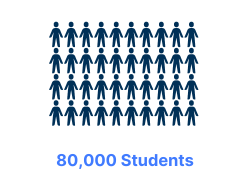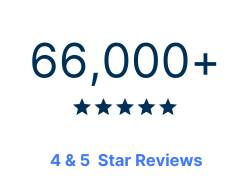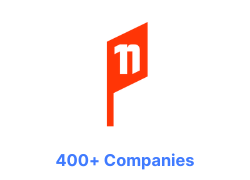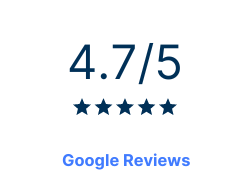
Microsoft Project Courses - Intermediate - Manila
Learn how to manage project costs and budgets using MS Project
Our Microsoft Project Intermediate course, includes assigning resources to a project, progress tracking, allocating cost and working more productively with project views. This course build on the core knowledge taught in our Project Beginner course. View our full course outline below.
Microsoft Project Courses - Intermediate - Manila

Assign resources to a project, track progress, allocate costs and work more productively with Project views.
₱ 22,500
10 max
1 day
₱ 22,500
10 max
1 day
Upcoming Courses:
Manila
We currently have no public courses scheduled. Please contact us to register your interest.
Remote PH
Date
Course
City
Status
Scheduled
Taking enrollments.
Confirmed
Taking enrollments.
Few Seats left
Book Now.
Sold Out
Try another date.
Project Intermediate Manila Course Details
Price
₱ 22,500
Duration
1 day
Times
9am-4pm
Class Size (max)
10
Class Size (avg)
5
Reference Materials
Provided
CPD Hours
6 hours
Delivery
Instructor-led training
Live Online
Address
Remote Classes
N/A


Project Intermediate Manila Course Details
Price
₱ 22,500
Duration
1 day
Times
9am-4pm
Class Size (max)
10
Class Size (avg)
5
Reference Materials
Provided
CPD Hours
6 hours
Delivery
Instructor-led training
Live Online
Address
Lumify Philippines
17F SM Aura Tower
Bonifacio Global City
Taguig
1630
Philippines


Project Course Outlines
Skills Test
Contact Us
What do I need to know to attend?
You should have completed the MS Project Beginner course or be familiar with the basics of Microsoft Project. The course is aimed at those familiar with MS Project but looking to learn how to get the most out of the in-built features.
The course is delivered in Microsoft Project Desktop, we don't currently offer a Project Online course.
Project Intermediate Manila Learning Outcomes
- Understand different methods of fixing over-allocated resources
- Understand how costs can be assigned to Work, Material and Cost Resources
- Add and work with constraints to your schedule
- Start tracking actual performance in a project
- Understand how Views are created and create your own custom Views
- Use Filters, Highlighting and Grouping to control how your Project data is presented
- Format your Gantt Charts to highlight crucial information
Project Intermediate Manila Course Content
- Resource Levelling
- Understanding Resource Levelling
- Creating Resource Chaos
- Tracking Down Over Allocations
- Checking Resource Usage
- Creating an Over Allocation Report
- Fix 1 – Changing Work Effort
- Understanding Overtime
- Fix 2 – Assigning Overtime
- Fix 3 – Hiring Contract Labour
- Fix 4 – Switching Work Assignments
- Fix 5 – Rescheduling Tasks
- Assigning Materials
- Assigning Fixed Material Consumption
- Contouring Materials Usage
- Adding More Material Assignments
- Assigning Variable Usage Material
- Adding to a Material Assignment
- Checking Work for Materials
- Costs
- Understanding Project Costs
- Reviewing Current Costs
- Entering Variable Costs
- Case Study Variable Costs
- Assigning Daily Costs
- Assigning Per Usage Costs
- Assigning Fixed Costs
- Assigning Material Costs
- Using Another Cost Table
- Applying a Different Cost Table
- Changing Rates During a Project
- Assigning Cost Resources
- Viewing Project Costs
- Constraints and Deadlines
- Understanding Constraints and Deadlines
- Reviewing Our Project
- Adding a Constraint
- Using Elapsed Time
- Rescheduling Tasks
- Creating a Deadline
- Project Tracking
- Creating a Baseline
- Automatically Updating Tasks
- Manually Updating Tasks
- Entering Delayed Tasks
- Tracking Actuals on a Gantt Chart
- Using the Tracking Box
- Viewing Task Slippage
- Printing and Reporting
- Printing a Gantt Chart
- Printing Sheet Views
- Printing Tasks for Resources
- Printing Resources for Tasks
- Project Views
- Understanding Project Views
- Working With the Standard Views
- Creating Split Views
- Creating a Custom View
- Creating a Custom Combination View
- Using Custom Views
- Customising the View Menus
- Saving an Existing View
- Deleting Unwanted Views
- Keeping New Views Local
- Tables
- Exploring Tables
- Creating a New Table
- Adding Fields Using Add New Column
- Adding Fields Using Insert Column
- Adding Simple Custom Fields
- Formatting Table Fields
- Creating a Simple Lookup Table
- Using a Custom Table
- Using a Hyperlink Field
- Controlling Project Data
- Understanding the Data Tools
- Basic Data Highlighting
- Highlighting Date Ranges
- Highlighting a Range of Tasks
- Highlighting Tasks With Specific Resources
- More Highlight Filters
- Applying Filters
- Creating a Custom Filter
- Using a Custom Filter
- Editing Existing Filters
- Deleting an Unwanted Filter
- Grouping Tasks
- Using AutoFilters
- Formatting Projects
- Understanding the Timescale
- Changing Time Periods
- Showing Tiers
- Modifying Specific Tiers
- Formatting for Non-Working Time
- Changing Text Styles
- Working With Gridlines
- Displaying Progress Lines
- Working With Progress Lines
- Changing the Layout
- Understanding Gantt Chart Bars
- Changing Gantt Chart Styles
- Changing Bar Text
- Formatting Selected Bars
- Changing Bar Styles
- Printing Gantt Charts
- Placing Printing Commands on the Ribbon
- Using Print Preview
- Setting Page Breaks
- Printing Specific Dates and Pages
- Printing Headers
- Printing Footers
- Working With the Legend
- Getting the Right Report Fit
- Exporting to PDF

 Australia
Australia New Zealand
New Zealand
 Singapore
Singapore
 Hong Kong
Hong Kong
 Malaysia
Malaysia
 Thailand
Thailand
 Indonesia
Indonesia
 phone
phone
 email
email
 enquiry
enquiry
























